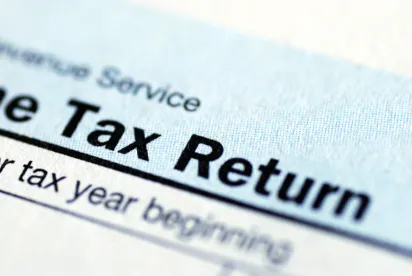The CARES Act provides for payroll tax relief, including employee retention tax credits and the deferral of all employer Social Security tax payments to help employers in the face of economic hardship related to the COVID-19 pandemic. Employers should work with their tax advisors, payroll providers, and payroll departments to immediately implement these valuable savings.
IN DEPTH
The broad-based employer and employee relief provided under the Coronavirus Aid, Relief, and Economic Security (CARES) Act includes two forms of payroll tax relief related to an employer’s Social Security tax payments: deferral of all employer Social Security tax payments, and employee retention tax credits of up to $5,000 for qualified wages paid to employees. All employers should consider taking advantage of these valuable tax savings to alleviate the broad and deep impact of the Coronavirus (COVID-19) pandemic on businesses and their employees.
Employer Social Security Tax Deferrals
Employers pay Social Security taxes at a rate of 6.2% on the first $137,700 of wages paid to employees for calendar year 2020. The CARES Act allows all employers to defer payment of employer Social Security taxes that are otherwise owed for wage payments made after March 12, 2020, through the end of the calendar year. Instead of depositing these taxes on a next-day or semi-weekly basis, the deposit due date for 50% of the taxes is deferred to December 31, 2021, with the remaining 50% deferred until December 31, 2022.
All employers should work with their payroll provider, payroll departments or payroll software to immediately begin deferring these employer Social Security taxes. The only possible exception is employers that are applying for the Small Business Administration (SBA) loans under the CARES Act. Even these employers are eligible for the deferrals until they receive loan forgiveness.
Employee Retention Payroll Tax Credits
What are the employee retention credits?
The employee retention credits are quarterly refundable payroll tax credits intended to incentivize employers to retain employees on their payrolls amid the economic hardships related to the pandemic. They are refundable credits against an employer’s Social Security tax obligations with a maximum annual credit of $5,000 on the “qualified wages” paid to each employee. Although the employee retention credits are quite broad, important limitations exist. The most notable are highlighted below.
What conditions make an employer eligible for employee retention credits?
An employer’s initial eligibility is triggered if either of two COVID-19 economic hardships arise within a calendar quarter for 2020:
- The employer’s operations are partially or fully suspended due to a governmental order limiting commerce, travel or group meetings.
- The employer experiences a significant decline in gross receipts.
Although this analysis is based on facts and circumstances, no guidance has been issued regarding what constitutes a partial or full suspension of business due to a governmental order. The more objective “significant decline” in gross receipts occurs during a calendar quarter where gross receipts are less than 50% of gross receipts for the same calendar quarter in 2019. Once the initial credit is triggered under the gross receipts test, the credits remain available throughout the calendar year unless the employer’s gross receipts for a subsequent 2020 calendar quarter exceed 80% of those for the corresponding calendar quarter in 2019.
Employers receiving an SBA loan under the CARES Act’s Paycheck Protection Program are not eligible for employee retention credits. In addition, the employee retention credits can be offset by payroll tax credits taken by employers under the Families First Coronavirus Response Act in connection with mandated leave.
What is the value of the employee retention credits?
The employee retention credits equal 50% of the “qualified wages” that an eligible employer pays in a calendar quarter, subject to a $10,000 cap (so that the maximum credit for wages paid to any employee is $5,000). Wages paid between March 13, 2020, and December 31, 2020, are eligible for credit.
What constitutes “qualified wages” for the employee retention credits?
The answer depends on the average size of the employer’s full-time employee workforce (i.e., employees working 30 or more hours per week) in 2019, with more stringent criteria for larger businesses:
- More than 100 full-time employees: qualified wages are all wages paid to an employee for the time that the employee is “not providing services” due to the COVID-19 economic hardship period.
- 100 or fewer full-time employees: qualified wages are the wages paid to any employee during the COVID-19 economic hardship period.
What are “wages” for purposes of the employee retention credits?
The basic wage calculation focuses on Social Security wages as reflected in Box 3 of the Form W-2 that are paid from March 13, 2020, through December 31, 2020, except that these may be increased by the employer’s healthcare expenses allocated to each employee, e.g., nontaxable premiums and/or COBRA coverage. Wages paid for which a credit was claimed under the Families First Act must be excluded from this Box 3 calculation. However, any additional wages paid to the employee may be counted as wages for purposes of the CARES Act employee retention credits.
How do employers claim the employee retention credits?
As refundable payroll tax credits, the credits can be obtained using procedures and methods modeled after the recoupment methods for any other overpaid federal payroll taxes during the calendar quarter. In other words, even though the employee retention tax credit is an employer Social Security tax credit, the employer can recoup the credit by reducing the tax deposits that would otherwise be made for employee federal income tax withholding, the employee Social Security/Medicare taxes and the employer Social Security/Medicare taxes. If those amounts are insufficient to recoup the taxes, the employer can request an advance from the Internal Revenue Service by completing and submitting a Form 7200 (Advance Payment of Employer Credits Due to COVID-19).




 />i
/>i

